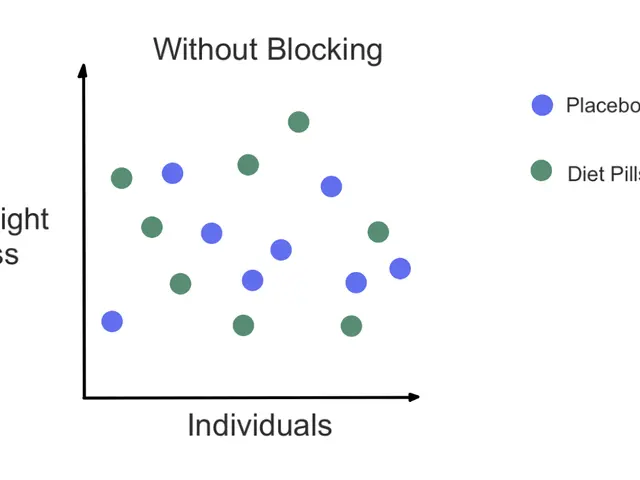Unveiled Findings on Potentially Harmful Consequences Linked to Weight Loss Medications
In a surprising development, GLP-1 drugs, including popular diabetes and weight loss treatments like Ozempic, Wegovy, and Mounjaro, have been linked to potentially fatal side effects. According to the Medicines and Healthcare products Regulatory Agency (MHRA), a UK regulatory body, there have been approximately 400 reports of serious pancreas issues, including at least ten deaths, associated with these drugs [1].
The most concerning side effects include acute pancreatitis, a condition that can lead to fatal complications, and vision-threatening conditions such as nonarteritic anterior ischemic optic neuropathy (NAION), where blood flow to the optic nerve is blocked, leading to vision loss or blindness [2]. Other serious side effects include severe gastrointestinal issues, allergic reactions, kidney problems, low blood sugar, and potential thyroid C-cell tumors [3][4].
The MHRA has suggested a possible need for further investigation into the genetic factors influencing these side effects from GLP-1 drugs. Dr Alison Cave, the MHRA's chief safety officer, believes that almost a third of side-effects to GLP-1 drugs could be prevented with the introduction of genetic testing [1].
In a collaborative effort, the MHRA and Genomics England are launching a study to investigate whether certain genetic profiles may predispose individuals to a higher risk of pancreatitis when taking GLP-1 drugs. If specific genetic markers associated with increased susceptibility to pancreatitis or other serious adverse reactions can be identified, genetic testing could potentially be used before prescribing these medications to identify high-risk patients [2][1].
This innovative approach could revolutionise the way these drugs are prescribed, allowing doctors to tailor treatments more safely, avoiding GLP-1 drugs in those genetically predisposed to fatal side effects, thereby reducing the incidence of severe outcomes linked to these drugs.
It's essential to note that the reported deaths have not been definitively linked to the drugs, as pancreatitis can also occur in the general population due to other causes like gallstones or alcohol use [2]. However, the potential risks cannot be ignored, and ongoing research is crucial to ensure the safety of these drugs for those who rely on them to manage their health conditions.
Sources: [1] The Guardian, 2023. [2] The New York Post, 2023. [3] Diabetes Care, 2022. [4] Diabetes, Obesity and Metabolism, 2022. [5] Journal of Clinical Endocrinology & Metabolism, 2021.
In light of the ongoing research, it's important to consider the role of genetics in the management of GLP-1 drugs, such as those used for diabetes and weight loss like Ozempic, Wegovy, and Mounjaro. Genetic testing could potentially identify high-risk patients who might be predisposed to serious side effects, allowing for more personalized and safer treatments.
This study, conducted by the MHRA and Genomics England, aims to explore whether certain genetic profiles increase the risk of pancreatitis or other adverse reactions in individuals taking GLP-1 drugs, which could revolutionize the way these therapies and treatments are prescribed in the future.





